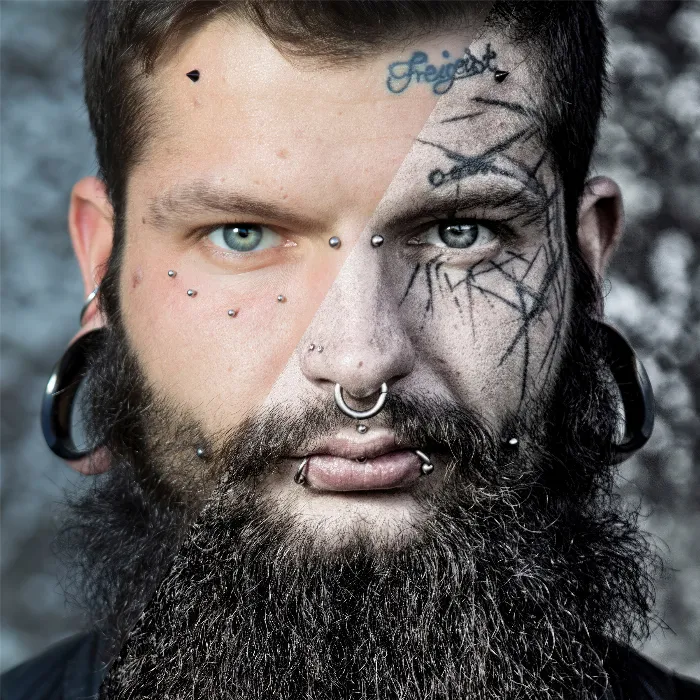Do you want to give your images an extraordinary color look? The duotone is an excellent method for coloring the highlights and shadows of an image with different colors. In this tutorial, we will show you how to effectively use the Cross Processing function of Color Efex Pro 4 to create exciting visual effects.
Key Findings
- With duotone, you can design highlights and shadows in different colors.
- By adjusting the strength, you can make the effect subtle or intense.
- There are different methods for implementing duotone that you can see in real-time in the preview.
- Best suited for high-contrast images with many highlights and depths.
Step-by-Step Guide to Duotone
Before we begin, make sure you have Color Efex Pro 4 installed and your image open. Now follow the steps to apply the duotone:
Step 1: Choose the Cross Processing Function
First, you need to select the Cross Processing function to get started with duotone. In Color Efex Pro 4, this option is very easy to find. Once you have selected it, you will have access to the sliders for adjusting the effect.
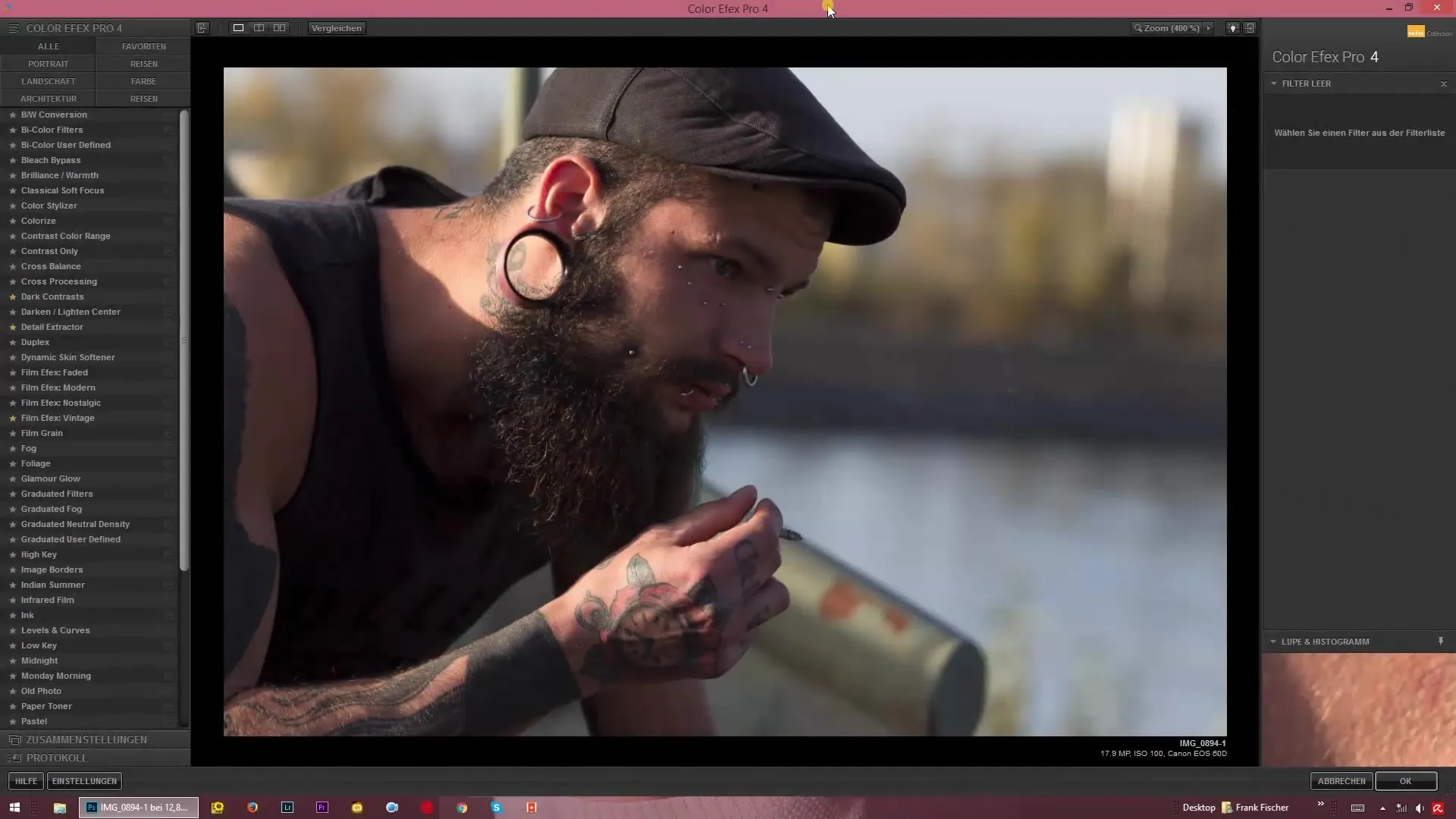
Step 2: Adjust the Strength Slider
Now you can use the strength slider to determine how pronounced the effect should be. Slide the slider right for more intense colors or left for a subtle application. Here you can decide if you want a bold effect or something more neutral.
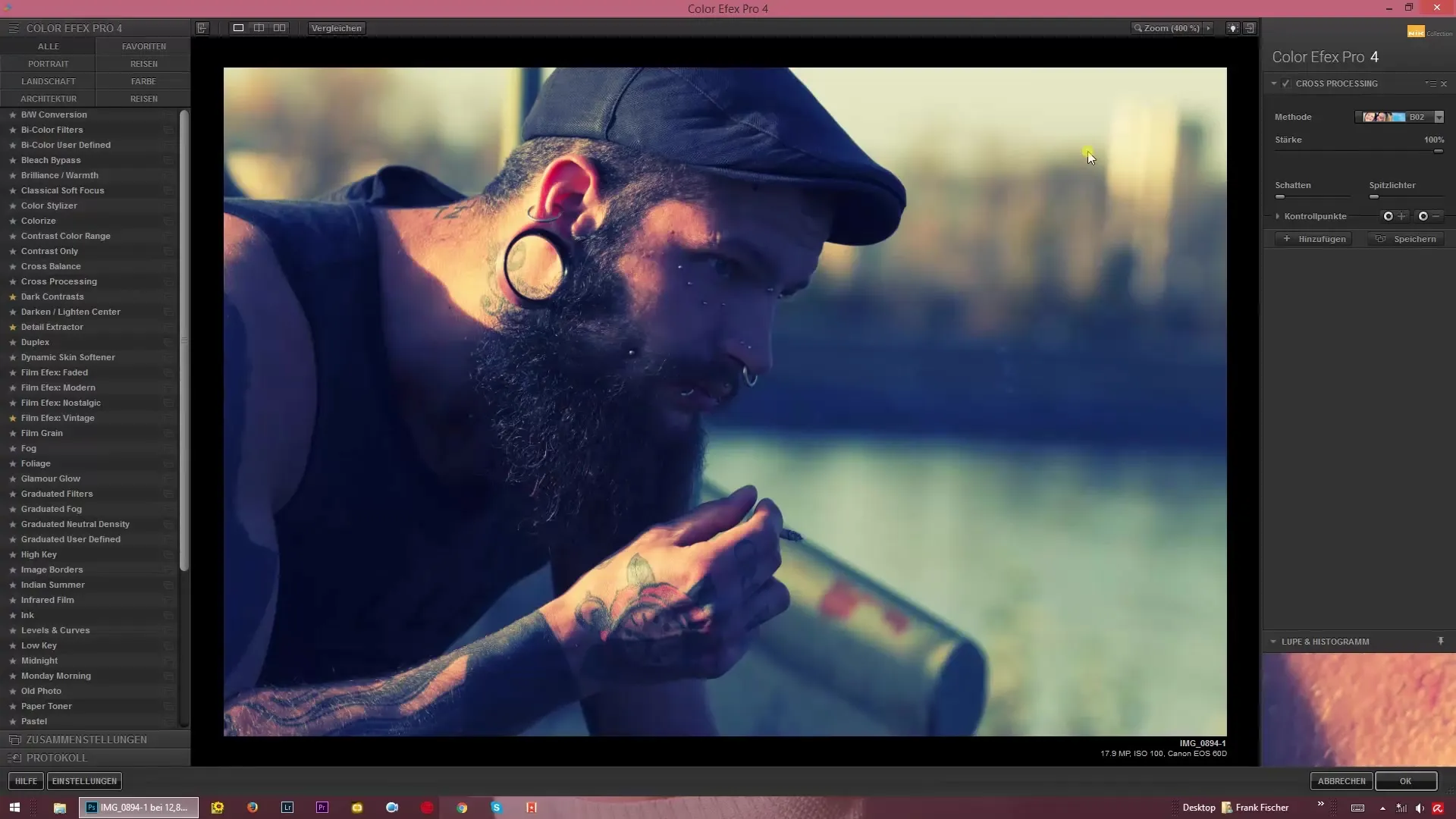
Step 3: Use the Preview Function
One of the great features of Color Efex Pro 4 is the preview. When you hover the cursor over the different methods, you can immediately see how your image changes. Use this function to compare the various color looks and choose your favorite.
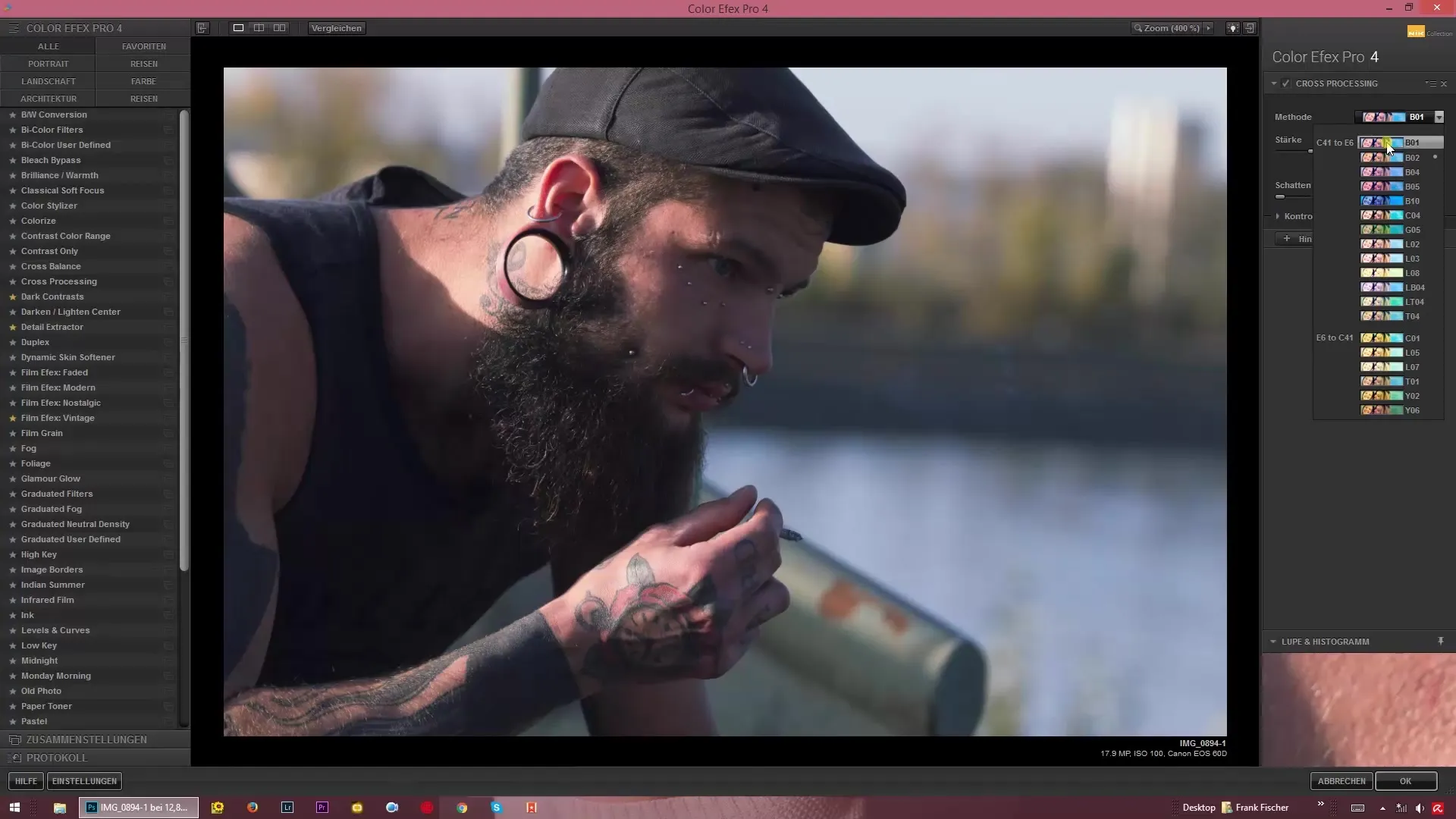
Step 4: Adjust Color Values
After you have set the strength, you can adjust the specific color values for the highlights and shadows. Play with the sliders to achieve a bluish-yellow effect. You can also adjust the darkness of the shadows or the brightness of the highlights to further perfect the image.
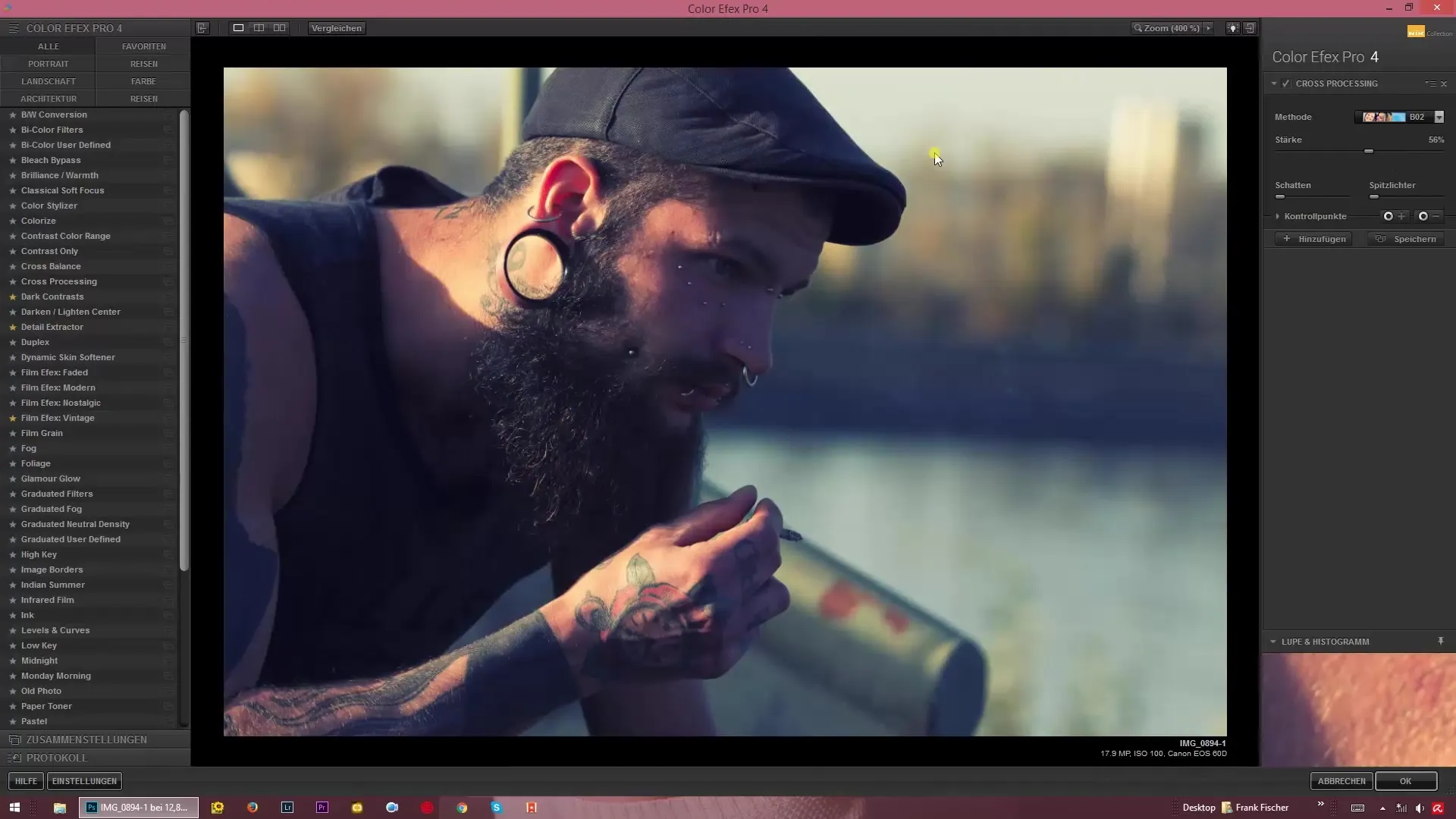
Step 5: Further Optimize Colors
To better harmonize the colors, you can experiment by making the shadows lighter or the highlights darker. Every time you make an adjustment, the color components in your image are directly influenced. Be sure to keep an eye on the contrast and colors.
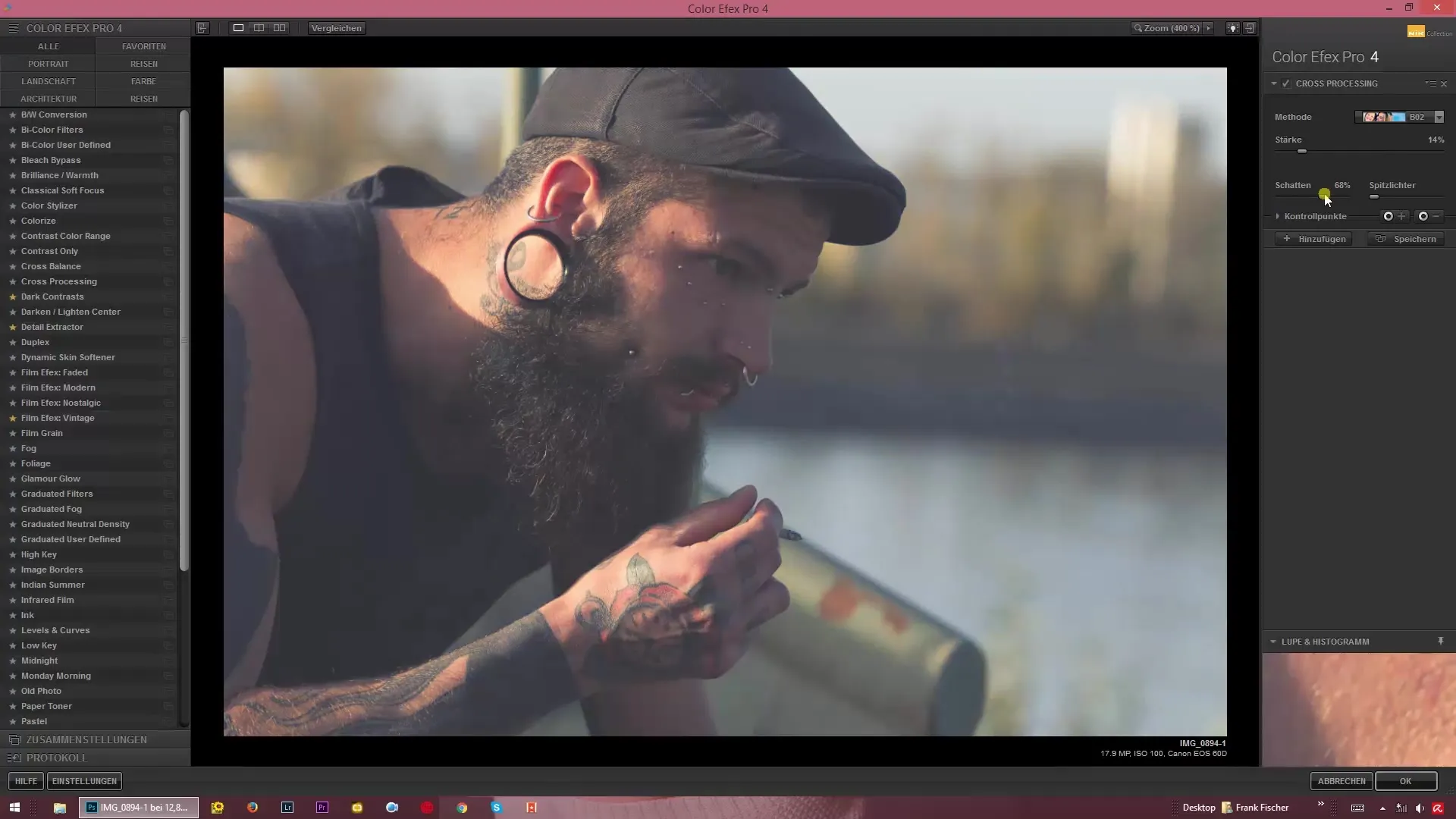
Step 6: Make Final Adjustments
After you have played with the sliders and found an interesting combination of colors, make sure you are satisfied with the result. You may need to lessen the strength of the effect again to create a harmonious overall picture. Remember: less is often more!
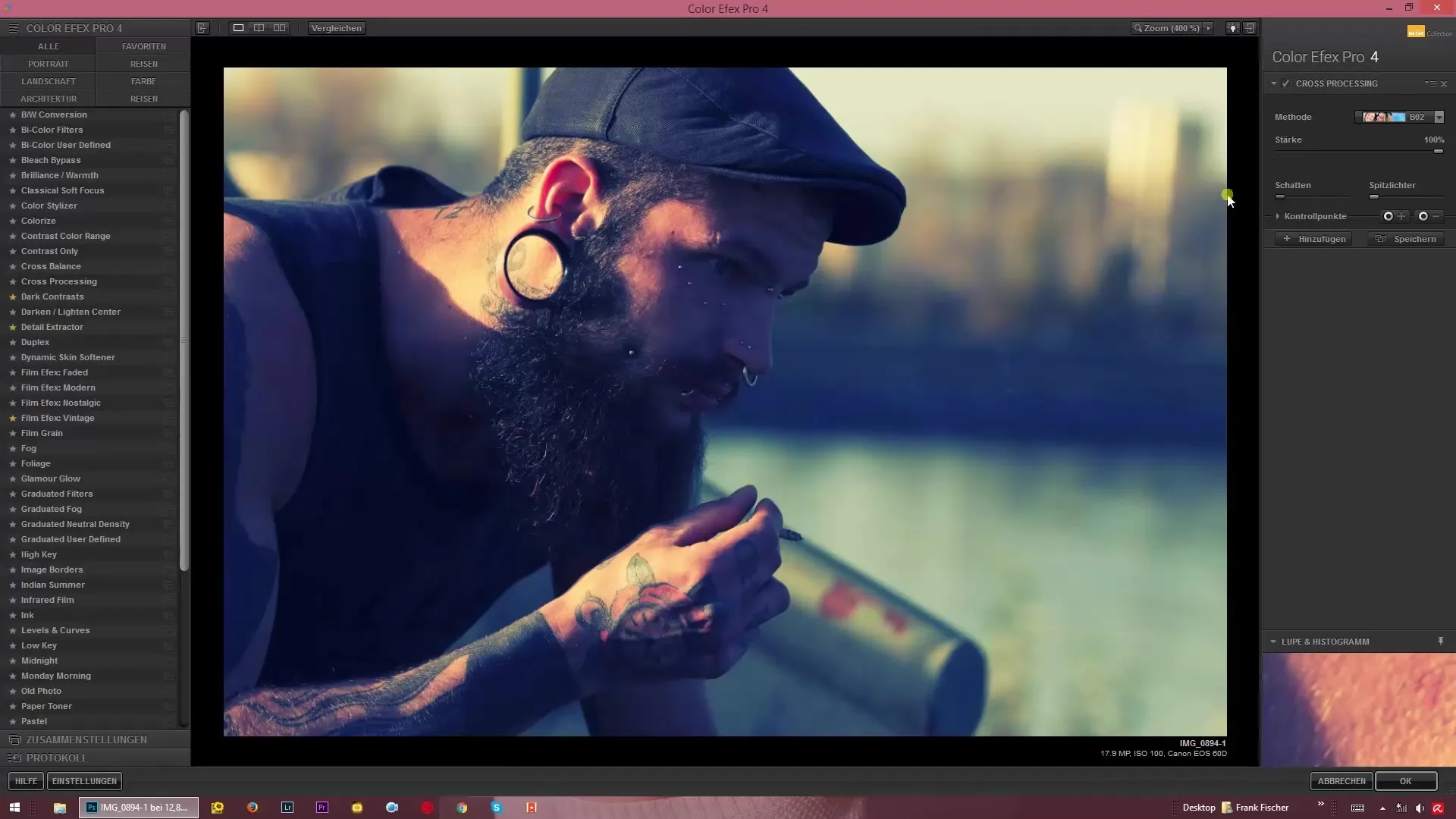
Summary - A Unique Look: Duotone with Color Efex Pro 4
With the Cross Processing function in Color Efex Pro 4, you can easily create dramatic color looks. By selectively applying duotone to highlights and shadows, you open up new creative possibilities. Experiment with the sliders to achieve the exact desired effect and let your creativity flow!
Frequently Asked Questions
What is duotone in Color Efex Pro 4?Duotone allows you to color highlights and shadows in different colors.
How does the preview function work?The preview shows you in real-time how different adjustments affect your image.
Which images are best suited for duotone?Especially high-contrast images with many highlights and depths can benefit from duotone.
Can I adjust the strength of the effect?Yes, you can easily set the strength of the duotone with a slider.
Do I have to choose a specific method?No, you can compare several methods and select the one you like best.
